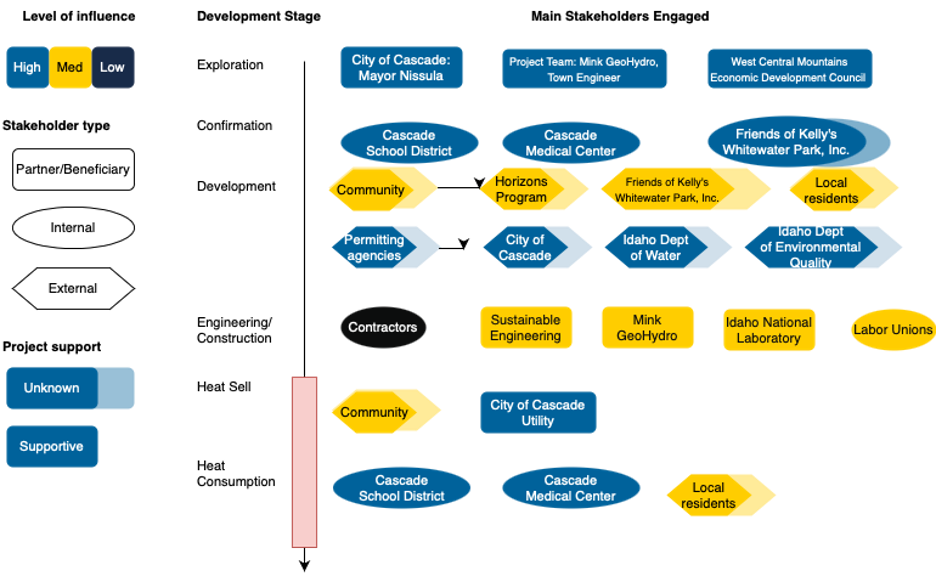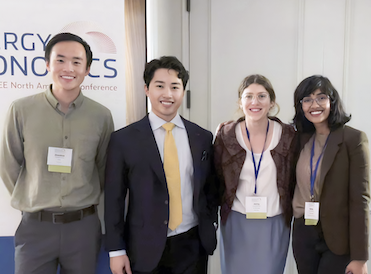UCSD graduate students Jenny Nicolas, Zhenhua Zhang, Manh Tri Dao, and Shiny Choudhury secured Second Place (and $6,000) at the U.S. Department of Energy 2023 Geothermal Collegiate Competition in the Policy Track.
The Geothermal Collegiate Competition annually challenges college students to develop real-world geothermal solutions, offering cash prizes and hands-on experience. This year they introduced two tracks–Technical and Policy. For the Policy Track, teams analyzed the regulatory environment and economic feasibility of a proposed geothermal district heating and cooling (GDHC) system.
The Davidson Lab team, co-advised by Bryant Jones and Professor Michael Davidson, proposed utilizing federal incentives to revitalize the Boise Cascade Mill—a brownfield site in Cascade, Idaho—with a clean, renewable GDHC system capable of meeting an 8.6-GWh annual energy demand for over 2,800 residents while creating nearly 100 local jobs. Literature suggests smaller rural cities like Cascade are often overlooked by national funders and face challenges navigating and utilizing federal energy incentives due to limited resources. Therefore, developing the GDHC system here could potentially bridge these gaps and set an example for other rural communities in the United States.
After performing a site selection analysis, the team formulated a plan to engage with relevant stakeholders. They conducted engagements with stakeholders, including the Cascade City Mayor, Cascade Medical Center director, permitting and regulatory agencies, geothermal researchers worldwide, and many others (Figure 1). The team determined there was genuine interest in advancing the GDHC project, especially after the City received a significant grant from the DOE for this purpose. Identifying potential areas for support, the team then consolidated a financial analysis that accounts for on-site project economics, including cash flows under different business models (Baseline, Franchising, and Innovation). They also performed permitting assessments that account for potential grants, loan programs, and other incentives at the local, state, and federal levels. They particularly focused on the utility of the landmark Inflation Reduction Act (IRA) in providing various incentives to support the site. The team’s work highlights the project’s economic, environmental, and social potential while outlining clear steps needed to advance the project and make it a reality.

Figure 1. The team’s strategy to map and engage with various stakeholders throughout the process of project development.
Ultimately, the team obtained an official letter of support from Judith Nissula, Mayor of the City of Cascade. The letter stated that the City was pleased by the team’s work and that the information compiled for the report complements the City’s planning and design efforts. The letter also confirms the City’s commitment to host an in-person community engagement event should the project be selected for further support by NREL.
In 2023, the team took home the First Place Award at the United States Association of Energy Economics (USAEE) International Case Competition, which, coincidentally, also focused on the application of geothermal energy, as a tool for electric grid decarbonization. The team feels fortunate to have had these recent wins and is excited to utilize the insights gained in their respective clean energy careers.

